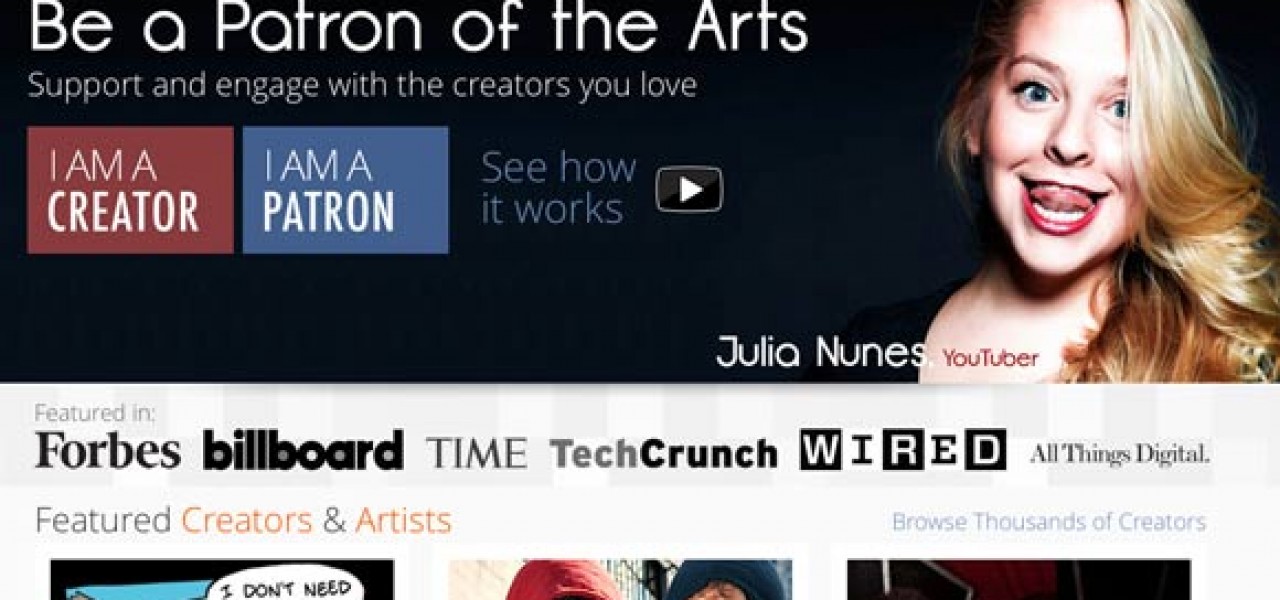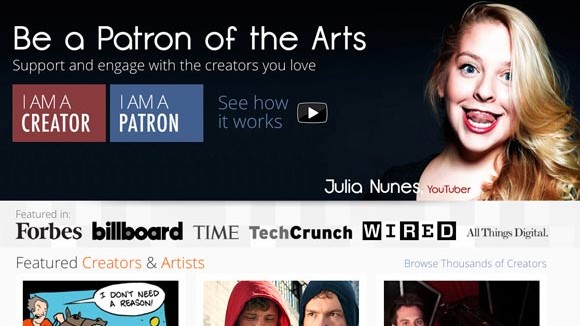

Patreon Offers a New Way to Crowdfund Animation

There are countless crowdfunding sites nowadays, but none have offered a viable alternative that challenges Kickstarter and Indiegogo’s dominance. Patreon may change that though. The crowdfunding site offers a smart twist on the crowdfunding model that may prove attractive to filmmakers who want to produce content regularly.
What sets Patreon apart is that backers don’t pay toward the completion of a single project, but rather they become patrons of a specific creator by contributing a much smaller amount on a regular basis. For example, if you’re a filmmaker who regularly releases new content on-line, you can create a campaign so that backers will pay you a buck or two every time you post a new work.
The most recent high-profile animation artist to join Patreon is Jason Steele, the creator of YouTube hits like Charlie the Unicorn and Llamas with Hats. Although Steele’s production company FilmCow has nearly 1 million subscribers and 325 million views on its YouTube channel, Steele is struggling to make money from YouTube thanks to changes the Google-owned streamer has made recently. Steele writes:
Most of the money FilmCow makes to sustain itself comes from YouTube ad revenue. This has allowed us to earn a living independently producing videos since 2009, however over the last couple of years YouTube has implemented some problematic site changes that have made things much more difficult for us. Most severe of these changes is the way our videos reach, or rather don’t reach, subscribers. Unless you click on the “My Subscriptions” tab (and most people do not), there’s only a short window of time in which new videos from people you’re subscribed to will show up on your YouTube homepage. The result of this is that even though we have about a million subscribers, fewer subscribers are seeing our releases than back when we had a tenth of that.
This isn’t as big of a problem for people who release very frequent content. If you’re a vlogger or commentator putting out a new video every day then something you’ve released will almost always be visible to your subscribers. For people who produce scripted or animated content with a (very) small team, however, that sort of release schedule just isn’t possible.
When FilmCow releases a new cartoon the views drop dramatically after the first 24 hours, and most of our subscribers aren’t even aware that something was released. 200-300 thousand views per video is fantastic when you can release multiple times a week, but when it takes one or two weeks to create a video those sorts of numbers are no longer profitable.
Steele’s Patreon campaign, which launched today, currently has 22 patrons who are contributing a total of $87 per video. That means that Steele’s average donation amount is currently $3.95 per video. Without the high pledge amounts that are normal on Kickstarter campaigns, filmmakers on Patreon can spend more of their time creating content rather tha fulfilling exorbitant backer rewards. The rewards that Steele offers are well suited to the amount of money he’s asking for: $1 per video gains behind-the-scenes access to the production of the films, $3 per video gets audio commentary, $5 per video gets an additional commentary track for older films, and $10 per video gets access to a live stream of a Q&A session every two weeks. (The Patreon model works in favor of the backers, too, since they are guaranteed to receive a new film whenever their bank account is charged, unlike Kickstarter/Indiegogo in which you pay the creator without a guarantee that the project will ever be completed.)
So far, webcomic artists have had better success with Patreon than animators. Zach Weinersmith receives $7,871 per month from 2,927 backers to create his online comic Saturday Morning Breakfast Cereal while Meredith Gran is currently earning $1,377 per month from 398 patrons to create Octopus Pie.
Patreon’s user interface still needs work. For example, its search function is all but nonexistent, which makes it difficult to discover creators on the site. Also, its small userbase means that the only creators who will benefit from it at this point are those who come to the site with a pre-existing fanbase. Further, like Kickstarter, Patreon charges creators about 8% commission (5% to Patreon and 3% for credit card processing), which is far too high, in my opinion. A reasonable total commission for a service of this nature would be in the 5% range.
Those issues aside, Patreon is developing an innovative subscription-oriented approach to crowdfunding that merits a closer look from animators who create content on a regular basis. Their set-up also pushes us one step closer to micro-payments, which is where I believe all of this will eventually end up.
(Thanks, Aryeh Zucchini, via Cartoon Brew’s Facebook Group)

.png)